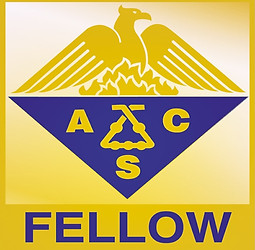The Jiao group
HIGHLIGHTS

November 20, 2025
Active learning-guided catalyst design
We reported an artificial intelligence (AI)-driven multi-scale simulation framework integrating grand-canonical density functional theory (GC-DFT), microkinetic modeling (MKM), and active learning to elucidate the CORR mechanism and guide catalyst discovery. The results have been published in Nature Communications. This is a collaborative work with Dr. Che at WPI.

September 26, 2025
Diaphragm-based carbon monoxide electrolyzers
In a recent study, we show that low-cost diaphragm materials, such as Zirfon, can serve as robust alternatives to AEMs in alkaline CO electrolysis. We evaluate a range of diaphragms and identify candidates that match or exceed the performance of commercial AEMs across a wide range of operating conditions. The results have been published in Nature Communications.

July 28, 2025
Jiao was elected as a Fellow of the American Chemical Society
Dr. Jiao was elected as a Fellow of the American Chemical Society. A news story can be found here [link].

April 9, 2025
Jiao received the ACS ENFL MidCareer Award
Dr. Jiao was recently the 2025 ACS ENFL MidCareer Award, recognizing his contributions in electrochemical technologies and contributions to energy storage, chemical manufacturing and sustainability. A news story can be found here [link].

April 3, 2025
Electrochemical production of nitric acid
Nitric oxide (NO) emissions pose significant environmental challenges that demand sustainable remediation strategies. In a recent article published in Nature Catalysis, we reported an electrochemical approach to convert NO into salt-free, concentrated nitric acid using a carbon-based catalyst at near-ambient conditions. A news story about this work can be found here [link].

March 27, 2025
Assessing economic viability of CO2 electrolysis technologies
Polymer membrane electrolysers can convert CO2 into valuable products and operate efficiently using renewable electricity. However, challenges related to economic viability, scalability and long-term stability hinder their commercial deployment. In a recent Review article published in Nature Review Clean Technology, we discussed the advantages and limitations of polymer-membrane-based CO2 electrolyser configurations.